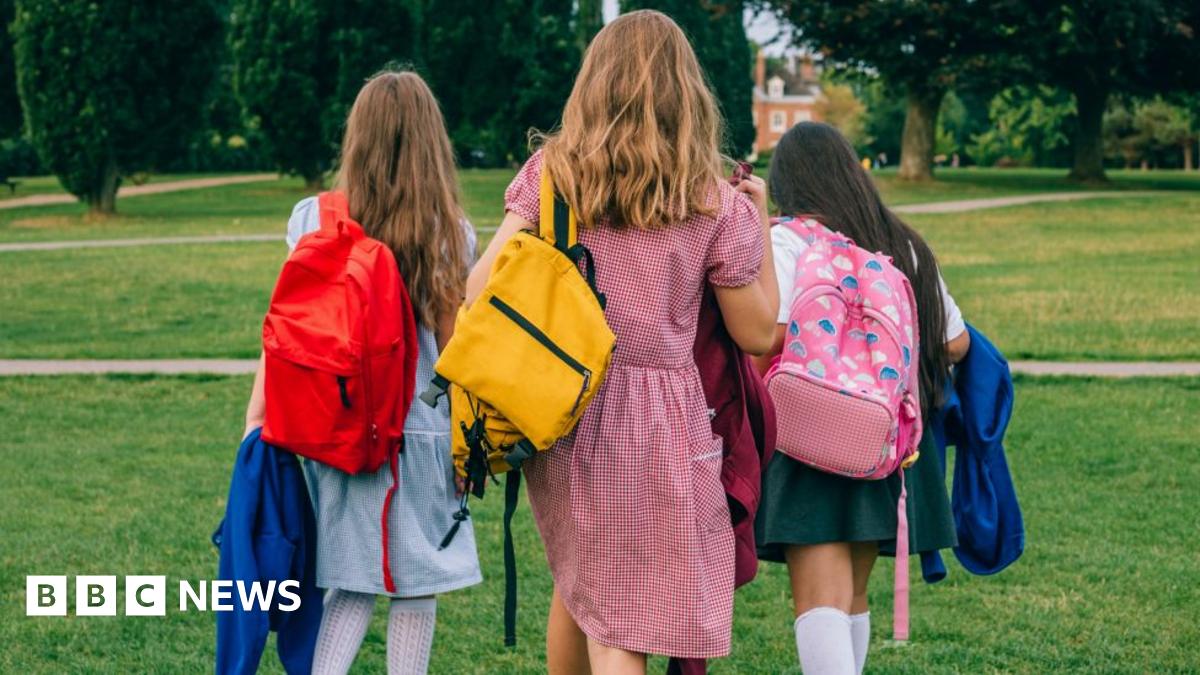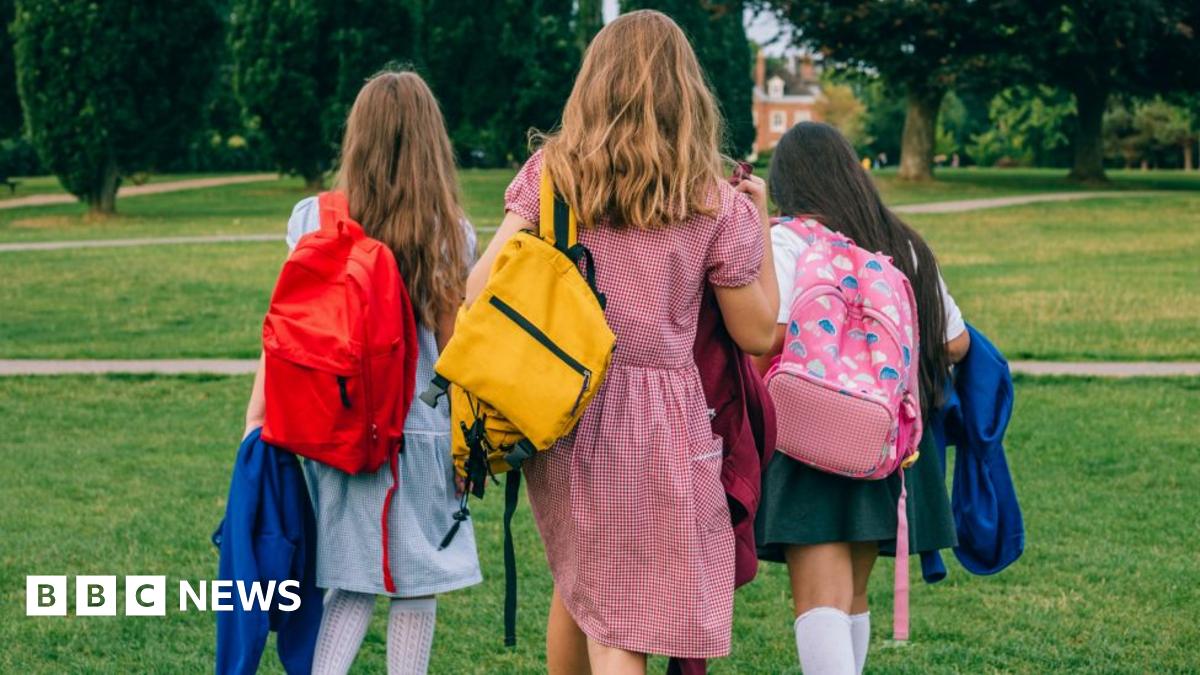The Great Debate: Should Summer School Holidays Be Shorter?

Welcome to your ultimate source for breaking news, trending updates, and in-depth stories from around the world. Whether it's politics, technology, entertainment, sports, or lifestyle, we bring you real-time updates that keep you informed and ahead of the curve.
Our team works tirelessly to ensure you never miss a moment. From the latest developments in global events to the most talked-about topics on social media, our news platform is designed to deliver accurate and timely information, all in one place.
Stay in the know and join thousands of readers who trust us for reliable, up-to-date content. Explore our expertly curated articles and dive deeper into the stories that matter to you. Visit Best Website now and be part of the conversation. Don't miss out on the headlines that shape our world!
Table of Contents
The Great Debate: Should Summer School Holidays Be Shorter?
The long, lazy days of summer vacation are a cherished memory for many, a time for carefree fun, family trips, and a much-needed break from the classroom. But as the school year ends and the familiar summer excitement begins, a debate simmers beneath the surface: should summer school holidays be shorter? This isn't just a question for parents and teachers; it's a complex issue with far-reaching implications for students, the economy, and society as a whole.
This article delves into the arguments for and against shorter summer breaks, exploring the educational, social, and economic factors at play. We’ll examine current research and consider the potential consequences of altering a tradition as deeply ingrained as the summer holiday.
The Case for Shorter Summer Breaks:
Proponents of shorter summer breaks argue that the current length leads to significant learning loss, often referred to as the "summer slide." Studies have consistently shown that students lose a considerable amount of academic progress during the extended break, particularly in mathematics and reading. This loss disproportionately affects disadvantaged students, widening the achievement gap.
- Reduced Learning Loss: A shorter break could mitigate the summer slide, ensuring students retain more knowledge and skills gained during the school year. This could lead to improved academic performance overall.
- Enhanced Learning Retention: Regular engagement with educational material, even in a less formal setting, could help solidify concepts learned throughout the year.
- Improved Academic Achievement, Particularly for Disadvantaged Students: Bridging the learning gap between advantaged and disadvantaged students is a key argument for reform. Shorter breaks could offer more consistent learning opportunities for all.
- Better Preparedness for the Following School Year: Starting the new school year with less academic ground to cover could allow for a more enriching and challenging curriculum.
The Case Against Shorter Summer Breaks:
The opposition to shorter summer breaks emphasizes the crucial role of summer vacation in student well-being. The long break offers vital time for rest, relaxation, and pursuing extracurricular activities. Reducing this time could have detrimental effects.
- Negative Impact on Student Well-being: A shorter break could lead to burnout and increased stress levels among students, impacting their mental and physical health. Summer is crucial for rejuvenation.
- Limited Time for Extracurricular Activities and Personal Growth: Summer allows for exploration of hobbies, sports, and other interests outside the academic realm, fostering personal growth and development. A shorter break restricts these opportunities.
- Increased Parental Burden: Shorter breaks might place a heavier burden on parents, requiring them to arrange childcare and other logistical support during the reduced vacation period.
- Potential for Increased Inequality: Not all families have the resources to engage in enriching summer activities. A shorter break might exacerbate existing inequalities.
Finding a Balance:
The debate isn't about eliminating summer vacation entirely, but rather finding a balance between academic progress and student well-being. Perhaps the solution lies not in drastically shortening the break, but in implementing more engaging and enriching summer programs. These could include:
- Summer enrichment programs: Focus on hands-on activities and real-world applications of learning.
- Mentorship programs: Pair students with mentors who can provide support and guidance.
- Extended learning opportunities: Utilize technology and other resources to provide continued learning opportunities outside the traditional classroom setting.
The debate over summer school holidays is multifaceted and requires careful consideration of various perspectives. Ultimately, the optimal solution may involve a combination of strategies that address both academic needs and the crucial role of summer in student well-being. What are your thoughts? Share your opinion in the comments below.

Thank you for visiting our website, your trusted source for the latest updates and in-depth coverage on The Great Debate: Should Summer School Holidays Be Shorter?. We're committed to keeping you informed with timely and accurate information to meet your curiosity and needs.
If you have any questions, suggestions, or feedback, we'd love to hear from you. Your insights are valuable to us and help us improve to serve you better. Feel free to reach out through our contact page.
Don't forget to bookmark our website and check back regularly for the latest headlines and trending topics. See you next time, and thank you for being part of our growing community!
Featured Posts
-
 Access To Advanced Cancer Care Improves In Northern New Mexico Thanks To Santa Fe Center Expansion
Jul 22, 2025
Access To Advanced Cancer Care Improves In Northern New Mexico Thanks To Santa Fe Center Expansion
Jul 22, 2025 -
 F 35 Bs Kerala Delay Insight Into The Uk Fighter Jets Indian Technical Issue
Jul 22, 2025
F 35 Bs Kerala Delay Insight Into The Uk Fighter Jets Indian Technical Issue
Jul 22, 2025 -
 Luton Airport Wizz Air Plane Diverted Due To Technical Difficulties
Jul 22, 2025
Luton Airport Wizz Air Plane Diverted Due To Technical Difficulties
Jul 22, 2025 -
 Pros And Cons Of Reducing Summer School Vacation Time
Jul 22, 2025
Pros And Cons Of Reducing Summer School Vacation Time
Jul 22, 2025 -
 Amsterdam Parliament Recognizes East Turkestan A Symbolic Victory For Uyghur Activists
Jul 22, 2025
Amsterdam Parliament Recognizes East Turkestan A Symbolic Victory For Uyghur Activists
Jul 22, 2025
 Chicago Heat Advisory 100 Heat Index Expected Thursday
Chicago Heat Advisory 100 Heat Index Expected Thursday
 Californias Vandenberg Air Force Base Key To Space Xs Starlink Satellite Deployments
Californias Vandenberg Air Force Base Key To Space Xs Starlink Satellite Deployments
 American Dream Fulfilled Normandy Adventure For Two
American Dream Fulfilled Normandy Adventure For Two
